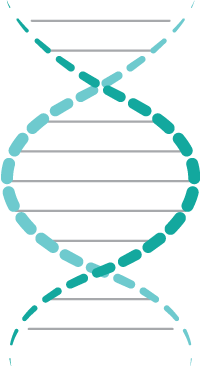You may already know that one of the key challenges everyone faces with retirement planning is longevity. Now that people are living longer, the need to anticipate future costs is more important than ever.
But a new area of inquiry, spearheaded by the great finance professor Moshe Milevsky, complicates this simple idea: your biological age.
What is Your Biological Age?

If your chronological age measures your age in years, your biological age examines how old you are as suggested by a few different physiological signals. Telomeres—compound structures found at the end of chromosomes—are often used to determine bio age, as well as process called DNA methylation. In fact, there is a growing industry that is centered around determining biological age.
With the introduction of biological age, we now have another factor we can use to build your financial plan. Is it possible that your biological age is younger than your chronological age? Then we may be looking at strategies that extend your income. Some solutions offer guaranteed regular income that cannot be outlived. Conversely, if your biological age is older than your chronological age, what solutions might we explore to ensure the best quality of life in retirement?
While the concept of biological age can be relevant in financial planning, it is only one factor, among many, that may be considered. And before you rush out to the companies that offer biological age determination, keep in mind that in some states you may be required to disclose this information on insurance applications, which could impact the kinds of rates and features you are eligible for.
While the concept of biological age can be relevant in financial planning, it is only one factor, among many, that may be considered. And before you rush out to the companies that offer biological age determination, keep in mind that in some states you may be required to disclose this information on insurance applications, which could impact the kinds of rates and features you are eligible for.


